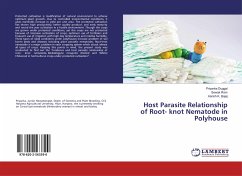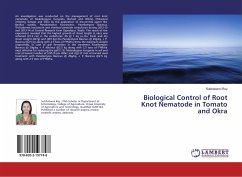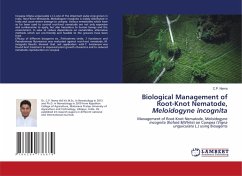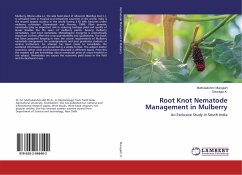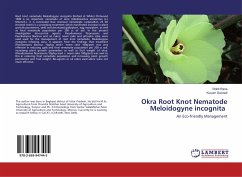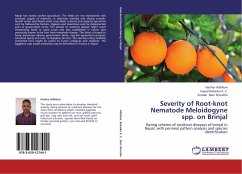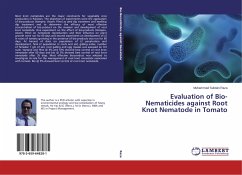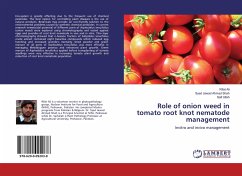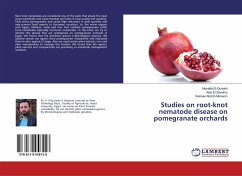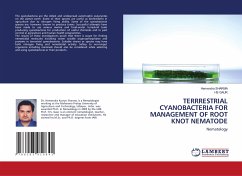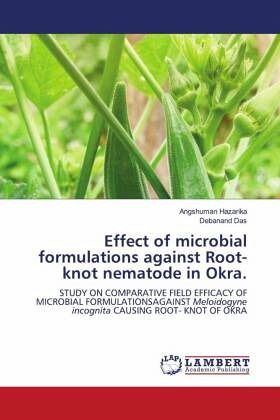
Effect of microbial formulations against Root-knot nematode in Okra.
STUDY ON COMPARATIVE FIELD EFFICACY OF MICROBIAL FORMULATIONSAGAINST Meloidogyne incognita CAUSING ROOT- KNOT OF OKRA
Versandkostenfrei!
Versandfertig in 6-10 Tagen
40,99 €
inkl. MwSt.

PAYBACK Punkte
20 °P sammeln!
Okra (Abelmoschus esculentus (L.) Moench) also known as 'Lady's Finger', or bhindi is an important vegetable crop belonging to the family Malvaceae and grown extensively in all the tropical and sub- tropical regions of the world and in some of the warmer parts of the temperate zone. Globally, India ranks first in okra production having an area of 509 thousand hectares with an annual production of 6095 thousand tons and productivity of 12 million t/ha. The crop is grown throughout India, Gujarat is the leading okra producing state which has production of around 1,019.42 thousand tons (15.89% of...
Okra (Abelmoschus esculentus (L.) Moench) also known as 'Lady's Finger', or bhindi is an important vegetable crop belonging to the family Malvaceae and grown extensively in all the tropical and sub- tropical regions of the world and in some of the warmer parts of the temperate zone. Globally, India ranks first in okra production having an area of 509 thousand hectares with an annual production of 6095 thousand tons and productivity of 12 million t/ha. The crop is grown throughout India, Gujarat is the leading okra producing state which has production of around 1,019.42 thousand tons (15.89% of total production) from an area of 75.27 thousand ha, with a productivity of 12.25 t/ha. Plant parasitic nematodes are considered as one of the major constraints for successful production of crops. Being obligate parasites, they must draw their nutrition from plant hosts and in the process, must debilitate the plant. Bio-control agent are reported to convert complex inorganic nutrients to soluble forms that become available for absorption to the plant roots and result in increased plant growth. This book give an insight on effect of bioformulations against root-knot nematode in okra.



